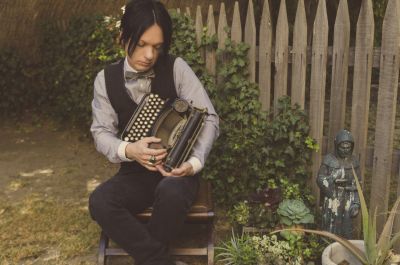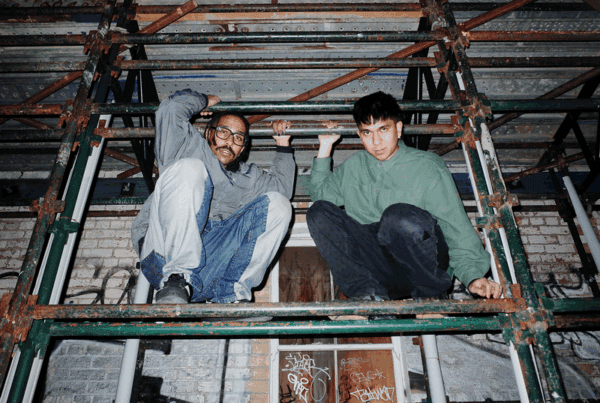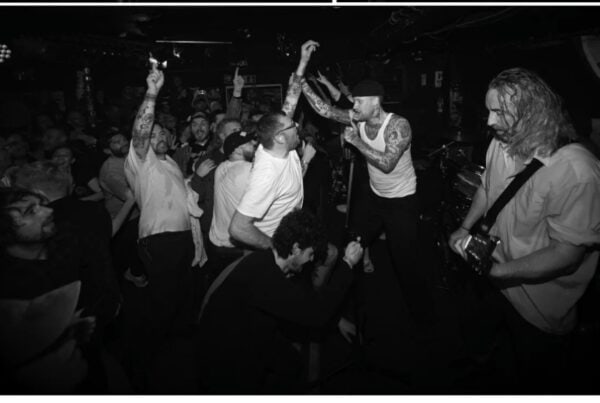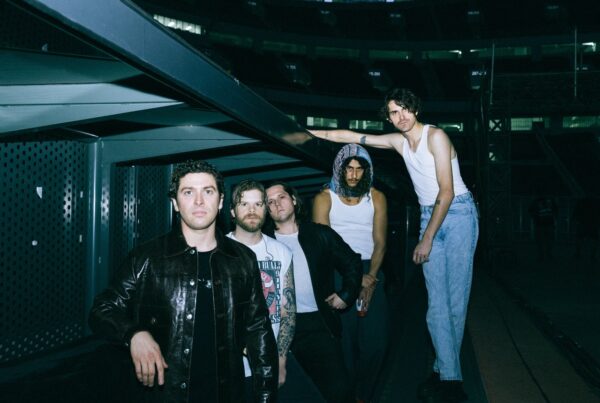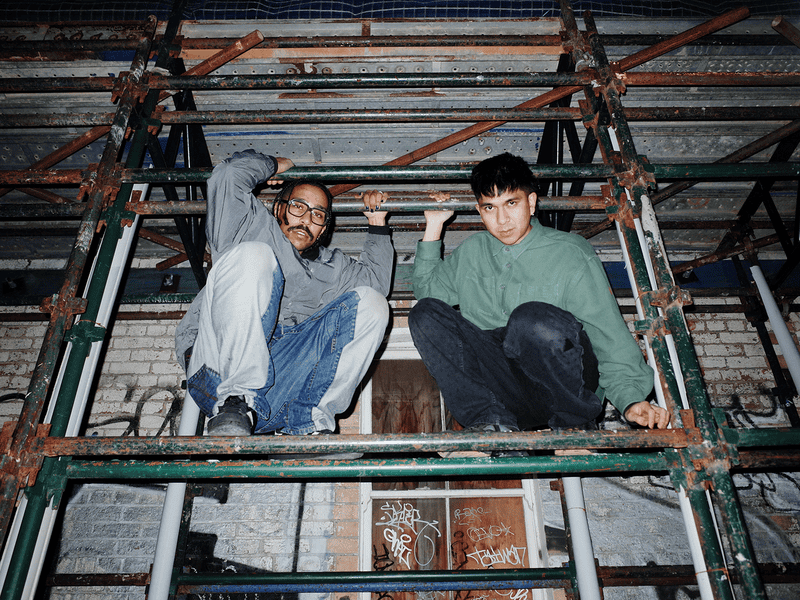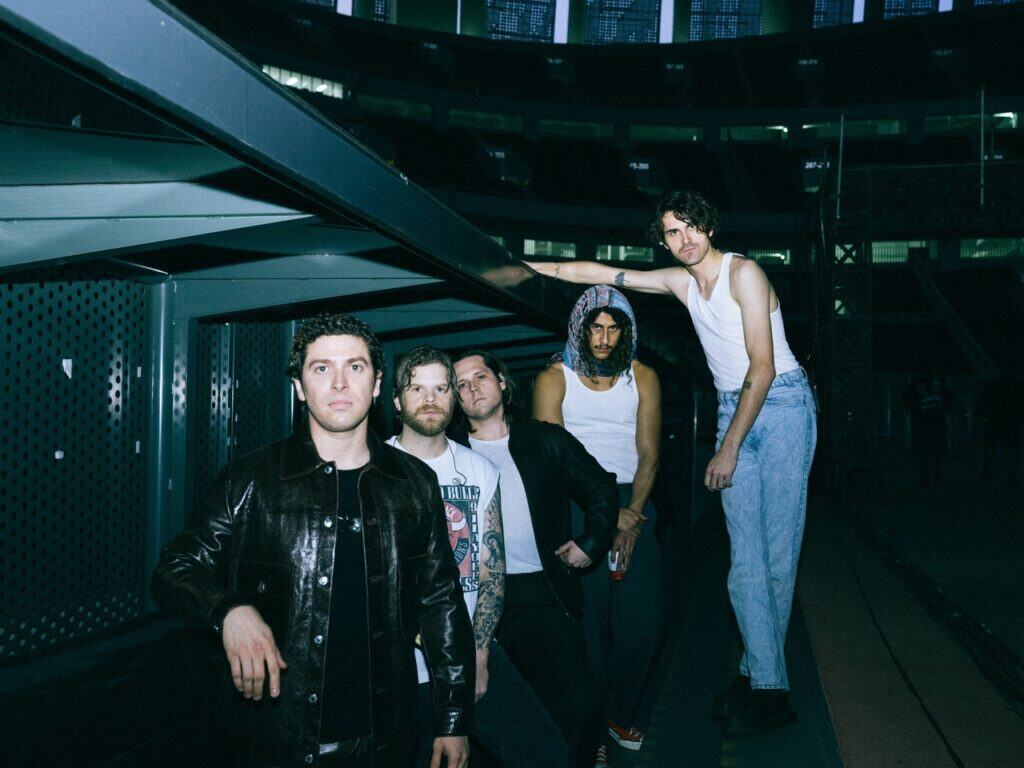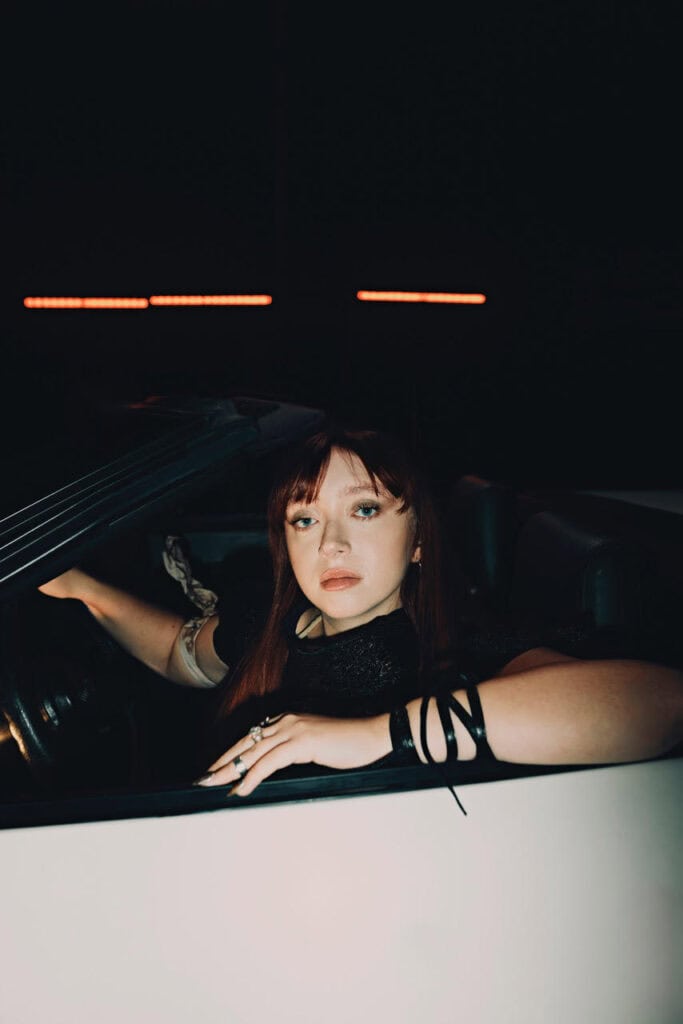In our latest interview, we’ve had the massive pleasure of speaking to Chris Vrenna. Chris is a multi-instrumentalist, producer, remixer and engineer to name a few of his skills. He has worked with the likes of Nine Inch Nails, Marilyn Manson, Gnarls Barkley, Guns ‘N’ Roses, U2 and countless more. He even scores games and movies! We talk to this true musical veteran (in audio and transcribed glory) about his inspirations, roots in to music, fond memories, and his own band tweaker, which has recently released its third album ‘call the time eternity’.
S] You’ve worked with so many artists of varying genres. Where does the inspiration for your own music as Tweaker come from?
C] “It comes a little bit from all of those artists and all of those genres, combined with just how I’m feeling at that time and the way it just kind of comes out. I think I’m influenced in tiny amounts from everything as oppose to being influenced in large amounts from small things. The reason I actually do tweaker is that I spend most of my time working with other people and doing, you know, whether it’s a remix for another band or label, or producing a band, or scoring. There’s always a certain reason or goal for that artist or label, director, game developer, so there’s always a certain amount of rules for all that, which is totally cool! But it always kind of sparks, ‘God if I had no rules, maybe I would try something like this!’ So I always keep track of those little sparks in my head and then those are inevitably what becomes tweaker.”
S] As a grammy-award winning producer, would you be interested in letting other producers work on your own written music?
C] “Oh, absolutely! It’s whether you have another writing partner or bandmate or even freakin’ Trent [Reznor], or ‘The Downward Spiral’. I think sitting in a vacuum by yourself is one thing, but any outside collaboration or just opinion sounding board, all that kind of stuff, I actually do think it’s important to the creative process to get other ideas or suggestions, inputs, directions, anything like that. I think it makes an artist grow. Sometimes you just get use to seeing or hearing something a certain way because you did it all, and then somebody can hear it completely different and then say something and it makes you think, ‘Oh man! I didn’t think of that’, which opens up other avenues to explore creatively.”
S] Relating to the previous question, when first starting out, what was your original goal? Or have you always wanted to do all things musical?
C] “I started playing drums when I was six years old. I grew up in a small town called Erie, Pennsylvania; it’s right on our great lake there, Lake Eire. I remember as a four or five year old my dad – who was super-encouraging my whole life – would notice I would march round my living room and be in time to the music. He used to take me to local parades and I would march or clap in time with the marching bands that went by, and he noticed that and tried to encourage it really early on and it was really hard to get a teacher to want to teach a kid that was six years old. Eventually this jazz teacher, Joe Matzak, said, ‘He’s a little young but let’s try it and if it doesn’t work I’ll let you know and then we’ll bring him back in a year or so’. My Dad was like ‘that’s all I was asking for’ and that was pretty much the end of it. I learned how to read in jazz from age six on. I guess I always didn’t want to do all things musical. In high school I was the drummer for musical theatre, like ‘Grease’ or ‘Godspell’. I also played in what was called junior philharmonic, it was from the proper eerie harmonic orchestra, they had a under 21 version and I auditioned and did that. You can’t rank one thing over another, music is music, and so I’ve always maintained that. Producing somebody, or remixing somebody, or writing something, or just being on tour playing drums, or scoring; they’re all, even though they’re incredibly different, they are all still yet the same. They just exercise different creative muscles, which is the only difference.”
S] You worked with Nine Inch Nails for a number of years. How would you reflect on this time now, in 2013 and do you think you’ll ever do work with Reznor and NIN again?
C] “How I reflect on it is; I mean me and Trent, I’ve known him since I was still in high school, and we were best friends for over a decade. Of course being a part of that band, and the music that came out of it and the things that we accomplished, were – obviously I’m incredibly proud; every night you’d be going ‘Jee, wow!’ Trent and I, We’re still friends, we both live in L.A and we go catch Korean barbeque once in a while. And sure, absolutely! If anything ever happened, sure! Why wouldn’t you want to go and work with your friends again?”
Of all the artists you’ve worked with, who did you have the most fun with and who did you learn the most from?
C] “Well I have fun – at least try to have fun – with everything I do, otherwise what’s the point really? I mean we were talking about Nails; some of the best times in my life! We were young and it just blew up! Especially after Woodstock; some of the insane things we got to experience and see. I had a lot of fun with Manson. I went to fill in for Ginger [Fish] in 2004, in the fall, when Ginger got really hurt and I left last year, so what does that make it? Seven years I guess! I made two records with them, ‘The High End Of Low’ and ‘Born Villain’, and also just years and years and years of world tours; we had some of the best times. Manson is an incredibly smart and funny dude. Every band has ups and downs. Being in a band is like a combination of being in business with somebody but also like being married. It combines business and personal in a way unlike any other relationship that people have in their lives; it’s kind of hard to explain. As far as learning, I’ve learnt from every single thing I’ve done, that’s the whole point! I consider Flood (U2) my favourite producer in general, he taught me so much about producing and what it means and just how to look at things and every project, whether when I was programming for the [Smashing] Pumpkins or working with U2, just every single experience has taught me something. I think if anybody ever says that they don’t learn anything they’re lying, or they’re just afraid to admit that there is something to be learned but there is on every project. That’s what people should try to do because that’s what makes all this better.”
S] You’ve written music for many games such as Doom 3, Sonic The Hedgehog, Enter The Matrix and in November 2011 you quit drumming for Marilyn Manson in order to score for more games and movies. How has this gone for you?
C] “Good! I filled in 2004 for Ginger, that’s what it was supposed to have been, and then years later…It was like; co-producing, co-writing, programming and engineering for those last two albums, and then going out on tour. It is a 100 per cent full-time job and it’s very exhausting. Manson lives a lifestyle that would be difficult to impossible, I think, for most normal human beings to keep up with; working night times, so on and so forth. During that time I did obviously continue to do other projects when I could squeeze them in but anything too time consuming I’d have to say no to because of that schedule. I was pretty exhausted after that many years, that kind of night time schedule and everything else – the tour schedule. I felt like after ‘Born Villain’ I’d pretty much done everything I could do with him. Like we were talking about earlier, every project does have a certain set of rules that makes that project what it is and I just kind of felt that maybe I’d done everything I could do within those set of rules that makes Marilyn Manson, Marilyn Manson! I wanted to stop saying no to so many projects and start saying yes, and start sleeping at night! So it’s being going great, had a great year. My first priority though was to do tweaker, get a tweaker record out because that had been kicking around for quite a while and I needed to do that, so that was my main focus for the first half of 2012 but everything’s going great! A little too busy, I actually worked Christmas Eve this year ‘cos I had two productions I had to put out by the New Year so yeah good Christmas. Busy as always!
S] Aside from music, what else interests Chris Vrenna? When you take a day off, what kind of things would you do?
C] “I don’t take too many days off. If I do, besides just sleeping and laundry like everybody else, I like to go to the movies; still trying to catch up on most of 2012 via I-tunes or Netflix. I do like American football. Football season is just ending here, we’re in our play-offs. My team, the Miami Dolphins, did better than I thought they were going to do but still didn’t make the play-offs. I like soccer too. I’m gonna tell you my teams, ’cause travelling around the world I spent so much time out of the country. You may not want to print this cos I don’t want to p*ss off most of the UK, but Arsenal’s my team there, and it’s Inter Milan in Italy, and it’s Bayern Munich in Germany. I do like sports and I do like to get out and just walk, exercise; I don’t play any sports or anything. And just spending time with my friends; ’cause I’ve been busy for so many years, that was a part of my life that unfortunately got back-burned for a while cos I was never really available to have a boys’ night out, so I’m trying to take a little bit more personal time for myself and also for friendships again.”
S] Compared to ‘2.a.m Wake-Up Call’, ‘call the time eternity’ featured less guest vocalists. Why did you move away from having these guest voices? When you did use a lot of guests on previous Tweaker albums, how did you approach the people you wanted to sing? Did you have their voice in mind whilst writing the songs?
C] “I purposefully did want to move away from leaning on the guest vocal thing. ‘2.a.m Wake-Up-Call’ obviously is the most guest vocal centric one; it was so cool and exciting, and always has been, being able to collaborate with people that I respect and am a huge fan of like David Sylvian (Japan) and Robert Smith [The Cure], everybody! No, I never had a particular voice in mind when writing, I just write, and then just approached those people that I’ve always been a fan of and shockingly enough, over all three albums , they would say ‘Yeah! I’ll do that’, and I’d be like ‘wow!’ So it would just kind of work out. The second tweaker record, we had a lot of people in that record – more than the other ones, confused some people because there were so many vocalists on there that it may have lost some sort of cohesion of tweaker. Also on this record I wanted to…i’ve always felt and used tweaker as autobiographical in nature, the things that I’ve been going through and have gone through. I wanted this album, where in the past I have relied on so many guests, to convey that character and tell the stories with the music itself which I think worked really well. Again feeling like it’s autobiographical in nature, I had always leaned towards male guest vocals, but Jennifer Charles [Elysian Fields] sings the last song on ‘2.a.m…’ called ‘Crude Sunlight’. That was the first time there had ever been a second character – if you will – introduced, and also a female voice. I liked it so much that I also wanted to continue that on to the new record and have that voice and that character, ’cause ‘call time eternity’ is a very kind of personal subject matter, and a sad and dark subject matter, and it just seemed natural to have that other character or voice there so it becomes more of a partnership or relationship as oppose to a singular or perhaps a cut off or lonely individual type of approach, and I think it worked really well and I’m proud of it all!”

